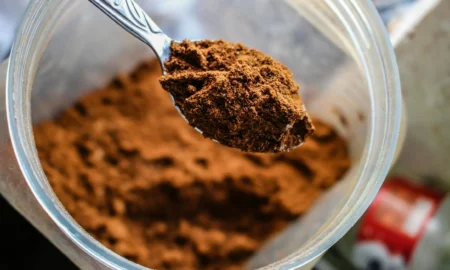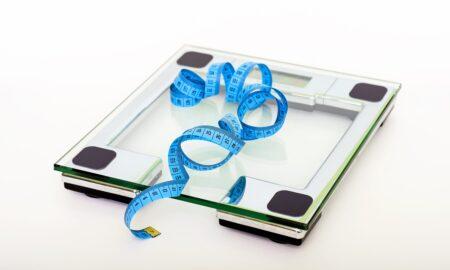
I am always asked about cheat meals, do I put them in my athlete’s diets, are they good for you, can they help you, why? Yes I do put them in almost all my client’s programs. If you adhere to a few simple rules of thumb you can make cheat meals work for you. First let me explain the value a cheat meal might have for your program, then I will explain the rules for having cheats in your diet and finally I will tell you when I take them out of a dietary plan.
As a serious and strict competitive dieter and athlete you probably follow a very strict dietary regimen. Ninety-nine percent of the time this is what you want to do in order to achieve great results with your body. For competition dieting you have to be ultra-strict and follow your plan to a “T” always. However, I know that having planned cheats in your prep process can have tremendous value. Here are several reasons why:
- If you can’t stick to it; it doesn’t matter
- Metabolic boost
- Fueling up a depleted body does you good
If you can’t stick to a dietary plan, no matter how good it is, it will be worthless to you. You have to build mechanisms into your lifestyle and dieting tactics that will empower you to stick to your plan and prep. Often times when you have a planned cheat meal it can provide you with a huge motivation to stick to your plan. Looking forward to a cheat meal can act as a powerful emotional reprieve for you as you plug away day after day hitting your cardio and doing your caloric restrictive dieting practices. Like I said earlier, if you can’t stick to a diet then that diet is really no good to you no matter how good the diet plan is. You must always make your diet practices realistic and doable. Adding in a cheat meal each week is a great way to make almost any hard diet doable.
As you diet for contests, your metabolism will always try and adapt to what you are doing to your body. If your calories drop each week then your body will eventually learn to live on less. This is why we are still walking this planet. Our bodies have this wonderful ability to adapt and move toward homeostasis, always striving to stay alive and create some kind of balance. As you get four, five and six weeks into a contest prep or dieting plan, your body is now starting to try and figure out what you are doing most of the time. So throwing in a planned cheat each week can go along ways into tricking your body and your metabolism into thinking that you are getting more calories and nutrients than it really is regularly. The net result is that a good cheat meal can, in these times, help bump up your metabolism. You can tell this is happening actually as you eat your cheat meal. Most people during this phase of dieting will notice that as they eat their cheat meals they break out in a sweat and get real hot. As a flood of nutrients hit your body’s energy systems, your body reacts quickly and can now regulate temperature better. Often times, your core temperature goes up enough, releasing more heat than normal and you sweat. This is your metabolism kicking up to accommodate for the extra calories.
More than just an emotional reprieve and more than adding fuel to your metabolic processes, cheat meals can help you reload valuable lost glycogen in your liver and skeletal muscle. Not only do you need glycogen in your body to fuel great workouts, but you also need some for your daily activities without burning muscle. ot having some of this glycogen reserves can be detrimental to holding onto all of your valuable muscle for contest time and for the healthiest metabolism possible. After all, the more muscle you waste during a diet the slower your metabolism will become simply requiring fewer and fewer calories to exist. This loss of lean tissue will in the end slow down fat loss exponentially during your diet because now your body not only requires less calories to live but now it also requires less energy to burn during your activities. Refueling these glycogen stores are vital to keeping your hard earned muscle on your body and ensuring that your metabolism is running as fast as it possibly can. All of this is under the assumption that your cheat meals have a substantial amount of carbohydrate matter in them. Which brings me to the rules of the cheat!
Rules of Cheat meals;
- Cheat at the end of your day
- Don’t skip any other meals
- Make your cheat carbohydrate rich
- Don’t let your cheat last more than 45 mins
Your cheat meals can be very effective in your dieting practices, but in order to make them completely effective for competition dieting and for making aggressive fat loss each week it is essential to follow these guidelines. Always eat your cheat meals at the end of your day. This seems at first to sound counter intuitive and may seem to go against common logic. But the truth of the matter is, if you are following a strict dietary regimen, you are doing cardio everyday, working out with free weights, and not cheating on your diet normally then the best time to eat a cheat meal is when it poses the least risk to your progress and gives you the most value. Eating your cheat in the evening is the best time of day because it is at the end of the day when you have less time to cheat afterwards. It has been my experience that when people cheat in the morning or earlier in the day, it is much harder for even the best dieter to keep to his or her normal meal schedule after a big cheat. Not only do you have to contend with elevated and very sensitive insulin levels (post-cheat meal), but you now are most likely bloated and full and less likely to eat your next meal on time, which is usually a couple hours later. Eating your cheat meal at the end of the day minimizes your risk of over eating this meal because you haven’t gone more than 2-3 hours between meals all day, your own natural insulin levels should be stable because of this, and you are in a good position now to enjoy a good cheat meal and get the benefits without too much risk of over doing it or gorging till you are sick.
The next important factor goes hand-in-hand with the first rule, always eat all of your other meals in your day. Don’t miss these other meals no matter how badly you think you will cheat on your diet with this free meal. The temptation is usually to minimize what you eat throughout the day to try and minimize the negative effects of eating more calories in one meal than you will probably eat in three or four prior meals. But this is never a good idea. Eat on plan and then do your cheat. If your diet is planned correctly and your body is in the right state then your cheat meal will only add value. Again, not eating your other meals will just artificially raise your insulin levels prior to your cheat and increase your risk of fat storage and more than likely cause you to overeat your cheat meal.
In every fat loss diet whether it be for competition or not, after a certain period of time you have to reduce carbohydrate matter in the diet in order to force your body to rely on other fuel sources, namely fat. During this process of slowly reducing carbs in your diet glycogen is leached from the muscles and eventually your muscles will become depleted of valuable glycogen. Planned cheat meals can become a valuable source of muscle glycogen if you eat cheat meals that are rich in good carbohydrates. Eating pastas, whole wheat breads, potatoes, rice and the like can really help replenish these glycogen stores. Not only does making your cheat rich in carbs help replenish your muscle glycogen but it also stimulates metabolism. Carbohydrates are the main macro nutrient that can motivate your metabolism to speed up when you are dieting hard. It will be natural for your metabolism to slow down through the dieting process, but eating a good cheat meal that is rich in carbs can help postpone your normal metabolic slowdown.
Final rule of thumb is really a word of common sense, don’t let your cheat meals last more than about forty-five minutes in duration. It isn’t hard to turn a cheat meal into a two hour smorgasbord of eating everything in sight. Remember the intention of your cheat meals are to add value to your dieting process. We want to stay motivated, decrease muscle wasting, increase metabolism, and achieve our goals of fat loss. This isn’t a time to go nuts! Many people start thinking that they deserve their cheats after working so hard throughout the week. I am here to tell you that you deserve NOTHING. I don’t mean to sound callus, but the truth is you deserve what you have already, not what you want. When you get achieve success with your dieting process and look the way you want to, then you will deserve it! Remember that this is a process that you have decided to follow and if you want the results of a well planned diet and you want to enjoy the benefits of a great looking, lean body then you will have to do do what is required to have that body. Deserving has nothing to do with any of this. Keeping to these rules for cheat meals will help guide you in having the most productive cheats possible, but remember all is for not if your diet isn’t designed correctly for you and if you don’t take enough time to achieve your goals. Good luck!




















You must be logged in to post a comment Login